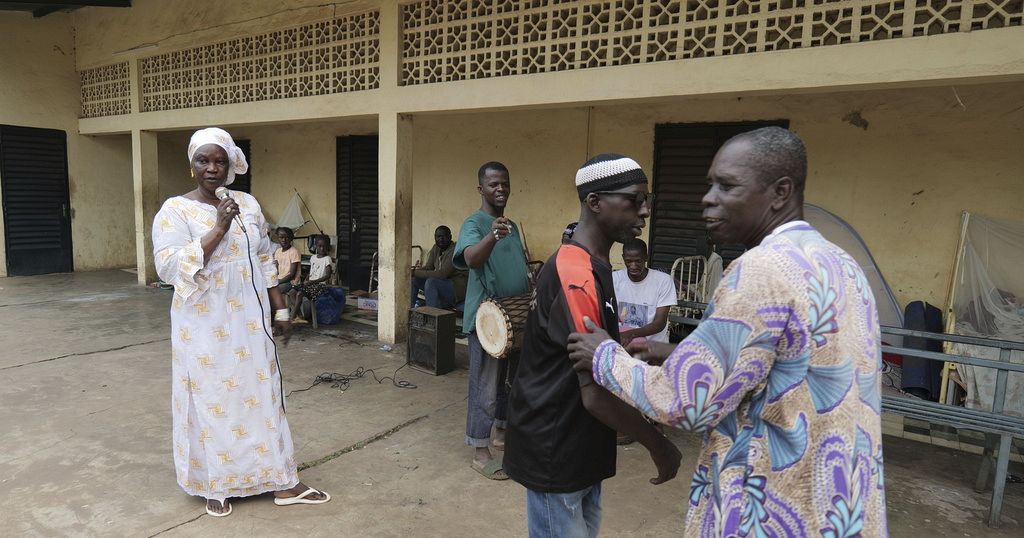Healing through Culture: The Power of Koteba in Mali’s Psychiatric Care
In the courtyard of one of Bamako’s main hospitals, a unique form of theater is bringing hope and healing to those in need. Koteba, a traditional form of drama and storytelling from Mali’s largest ethnic group, the Bambara, is being used to support patients with mental health issues. The program, which began in 1983, has been a game-changer for those receiving care at the Point G hospital.
The Koteba performances, which take place every Friday, are a three-phase process. First, the troupe plays music to invite patients into the courtyard. Then, they ask the patients to decide on the day’s theme or topic. After the performance, patients are given the floor to share their thoughts and feelings.
“It’s like a weight has been lifted off my shoulders,” says Mamadou Diarra, a young patient who has been participating in the program. “I never thought I’d be able to express myself like this. I never knew I could be an actor before.”
The program is more than just a form of entertainment; it’s a way to provide support and a sense of community for those struggling with mental health issues. With fewer than 50 mental health professionals for a population of over 20 million, according to the World Health Organization, Koteba is a vital tool in the country’s efforts to address the needs of those with mental illnesses.
Souleymane Coulibaly, a clinical psychologist at the hospital, explains that Koteba is a unique approach that is well-suited to help patients work through their problems. “Koteba is a traditional technique that was developed in the Bambara culture to address social problems, which are often dramatic, with the goal of de-dramatizing them,” he says. “It’s a powerful tool for healing and recovery.”
As the patients immersed themselves in the world of Koteba, they are able to share their thoughts and feelings in a safe and supportive environment. They act out scenes from everyday life, such as a man accused of theft fleeing a village. The performances are a testament to the power of community and the importance of giving a voice to those who often feel marginalized.
For Diarra and his fellow patients, Koteba is more than just a form of entertainment – it’s a way to find healing, hope, and a sense of belonging. As Adama Bagayoko, head of the theater troupe, says, “When they come here and see through the Koteba that they aren’t excluded because we give them the floor. We touch each other, we talk to each other, we dance together, we laugh together. This is the importance of Koteba. To touch someone shows that we are equal. To listen to them shows that they are important, and what they say is important.”
In a country struggling with economic hardship and political turbulence, Koteba offers a glimmer of hope for those in need of mental health support. It’s a powerful reminder that, even in the darkest of times, there is always a way to find healing and community through the power of culture.
